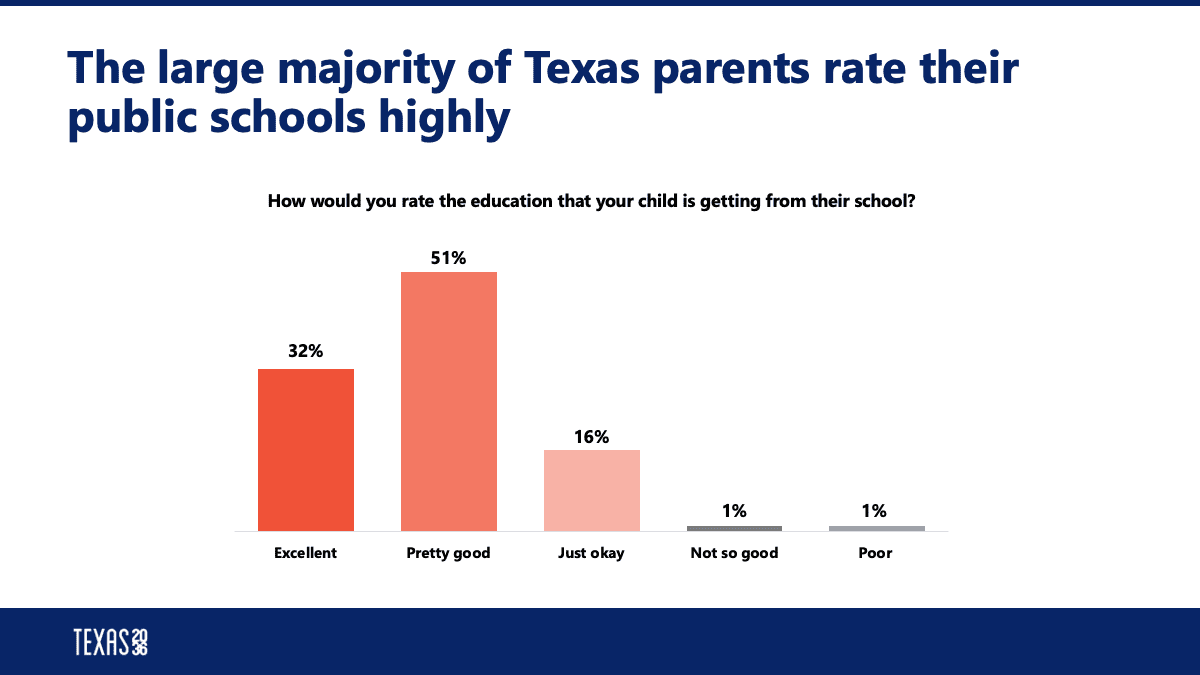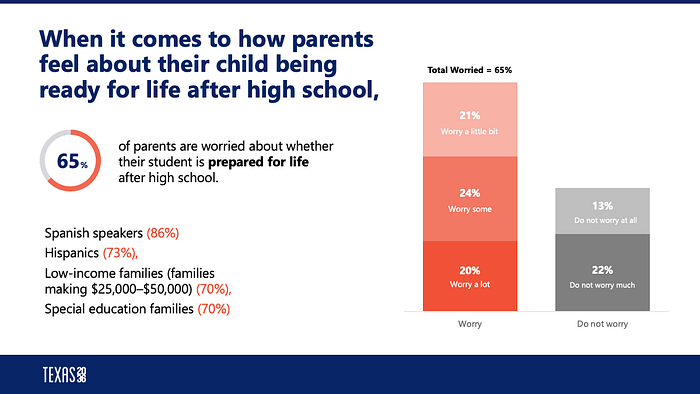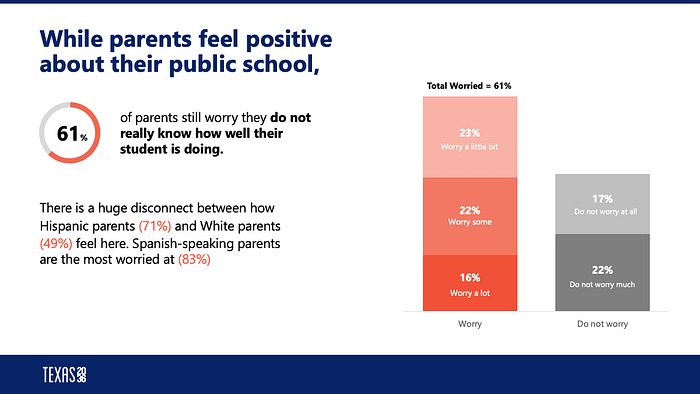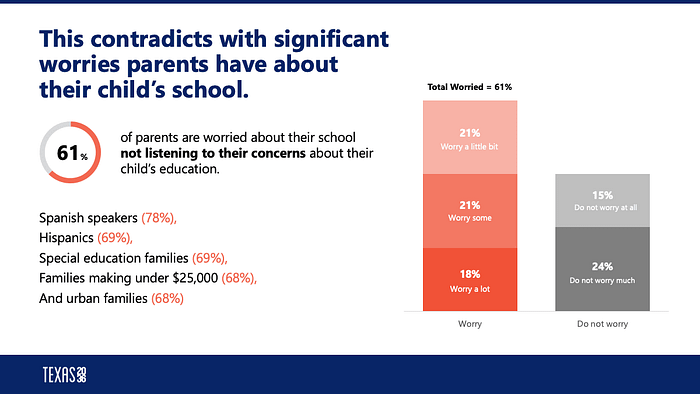Here’s Why Texas Parents Are Worried About Education
The following excerpt is from written testimony by Texas 2036 Senior Policy Advisor Mary Lynn Pruneda, which was delivered to the House Public Education Committee on July 26, 2022.
What to Know:
This interim, Texas 2036 commissioned several statewide polls to determine how parents feel about their child’s public education. Let’s explore two key takeaways:
- Parents like their child’s school, but they are worried about the quality of their child’s education.
- Parents rely on data to inform their understanding of how their child performs academically.
Parents like their child’s school but are worried about the quality of their child’s education and their ability to engage at school to support their children.
- 83% rated their child’s school as “Excellent” or “Pretty Good” when asked to rate the quality of their child’s public education. This is good news for Texas schools. It indicates a high level of parental satisfaction with the quality of their child’s school.

However, there is a tension in our results that should not be ignored:
- 60% or more of parents reported sincere concerns around their child’s academic performance, their child’s preparation for life after graduation, and their ability as a parent to engage to support their child.
- 65% or parents are worried about whether their student is prepared for life after high school. The most worried in this category were Spanish-speakers (86%), Hispanics (74%) and parents of 6th–8th grade girls (73%).

- 61% of parents are worried they do not know how well their child is really doing. Spanish-speaking parents (83%), special education parents (72%), bi-cultural parents (71%) and Hispanics (71%) were among the most concerned.

- 61% of parents are worried their school will not listen to their concerns. Once again, the most worried were Spanish-speakers (78%), followed by bi-cultural parents (72%) and parents of 6th–8th grade girls (70%). This is perhaps most alarming — those parents that are most concerned about their children’s learning and future feel the least empowered to their children. Parental empowerment requires that parents have the ability to impact their child’s education, yet nearly two-thirds of parents do not feel like their schools will listen to their concerns.
Parents rely on data to inform their understanding of how their child performs academically.
Parents need access to high-quality data on how their student is performing to address these concerns. When we asked parents in our statewide parent survey what sources of data they use to understand how their child is doing:
- 74% reported that they use information from the STAAR test to understand their child’s progress
- 80% Hispanic and 91% Spanish-speakers were among the groups who most rely on the STAAR exam for information.
This is important because parents who are experiencing the most anxiety about their child’s public education are those that rely the most on the STAAR exam.
We found similar results in our 2021 statewide voter poll.
When we asked voters how important having standardized testing data was so that the state could target resources to help students improve their reading, 93% of Texas voters said having this data was important to them.
In this same statewide voter poll, 88% of Texas voters — including 82% of voting parents — believe that we need to care/know enough about how all students are learning to measure their progress.
Where do we go from here? Find out as Mary Lynn Pruneda highlights how the state can actively empower parents to take part in their student’s education.

